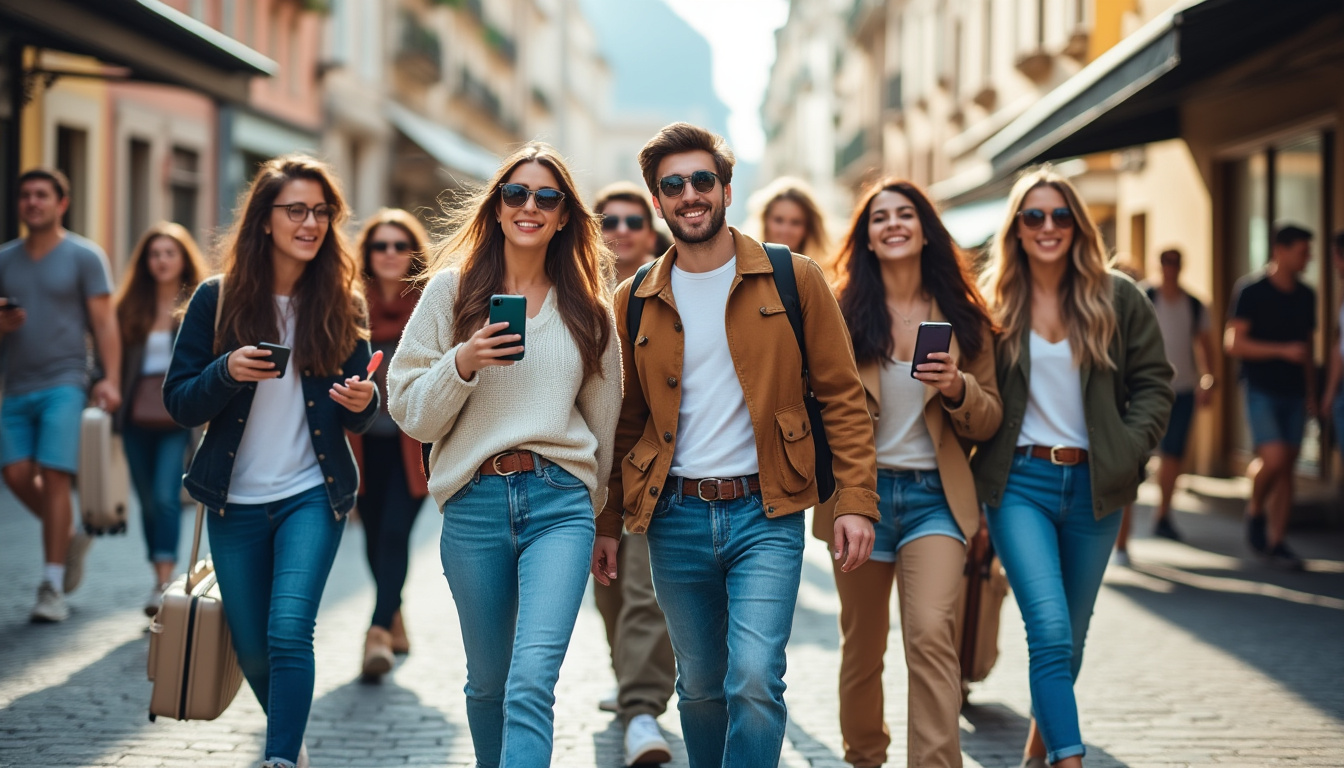Recent developments in the travel industry have been marked by an exciting collaboration between TikTok and Booking.com. This partnership is not just about offering travel bookings through a social media app; rather, it represents a profound shift in how potential travelers discover and secure accommodations. By integrating travel services directly into TikTok’s platform, users can now seamlessly transition from micro-content that inspires travel to actual bookings, thereby streamlining the entire journey from inspiration to action. The implications of this integration are far-reaching, affecting not only consumer behavior but also the strategies employed by travel agencies, hotels, and other stakeholders in the tourism sector.
TikTok’s Impact on Travel Discovery
At the heart of this transformation is the role of TikTok as a content generator for travel inspiration. In recent years, TikTok has evolved into a powerful tool for users seeking travel ideas. According to research from Phocuswright, nearly two-thirds of travelers using social media for trip planning have made purchase decisions based on content they’ve viewed. This statistic underscores the importance of platforms like TikTok, where engaging visuals and authentic recommendations abound.
The platform facilitates a unique storytelling approach, fostering user-generated content that resonates deeply with viewers. Typical travel marketing has often felt curated and overly polished; however, TikTok’s short-form video format allows for a more authentic glimpse into destinations and experiences through the lens of real travelers. This shift towards genuine content has led to a surge in interest for various locations.
Key elements contributing to TikTok’s impact on travel discovery include:
- Visual storytelling: Short videos showcase destinations in a relatable manner.
- Engagement with creators: Users trust influencers and commentators who share personal experiences.
- Instant access to information: Links in the bios of travel creators provide quick access to booking sites and additional resources.
This social approach to travel discovery aligns perfectly with current consumer behavior, particularly among millennials and Gen Z, who prioritize authenticity and personal connectivity. TikTok holds significant potential for impacting where and how people choose to travel. With the new Booking.com partnership, travel inquiry transforms into booking without the friction of navigating away from the inspiring content.

The Mechanics of In-App Booking
With the partnership between TikTok and Booking.com, an integrated booking experience is offered right within TikTok. Users are now able to click on links in the video descriptions or on content created by travel influencers, leading them to a browser window for Booking.com without exiting the app. This direct link from inspiration to booking represents a significant development in the travel funnel. Previous models required users to navigate multiple platforms, often losing interest or focus in the process.
This functionality is currently limited to a subset of TikTok users in the U.S., particularly for videos showcasing U.S.-based accommodations. Nevertheless, initial user feedback has been promising. After confirming a booking, notifications are sent to users’ TikTok inboxes, further enhancing the user experience by keeping everything consolidated within one platform.
Benefits of the in-app booking mechanism include:
- Simplified user journey: Users move directly from watching travel content to making reservations.
- Engagement with influencers: Users are more likely to trust an accommodation recommended by someone they follow.
- Tracking insights: Enhanced data collection on how users interact with travel content and bookings.
This seamless experience may ultimately change how hotels and other accommodations approach marketing and consumer engagement. The lines that traditionally separated discovery and booking are blurring, making it necessary for businesses to adapt their outreach and marketing strategies quickly.
Industry Reactions and Implications
The travel industry has exhibited mixed reactions to this new collaboration. While many industry professionals view it as a revolutionary shift, others remain skeptical. For instance, Louis-Hippolyte Bouchayer, head of lodging strategy at SAP Concur, has illustrated this shift as having “nuked” traditional models of the travel funnel. In his perspective, TikTok is changing the rules of travel distribution, merging entertainment with actionable booking opportunities.
Moreover, Lucy Kemmitz, global senior director of social media for Marriott, emphasizes how the experience of discovering travel through social media necessitates a frictionless transition to transaction. The urgency for hotels and related businesses is clear; they need to innovate and capitalize on this trend, integrating their offerings more creatively into the social media space.
Industry professionals have begun exploring how this represents a broader trend toward content reform in marketing. Some key themes include:
- Creator Partnerships: Travel businesses are encouraged to collaborate with content creators to boost visibility.
- Data-Driven Strategies: Greater emphasis on analyzing user behavior across social platforms can shape future marketing approaches.
- Responsive Campaigns: Adapting promotional strategies based on trends observed in social media performance.
As the integration of TikTok and Booking.com unfolds, it could set a precedent for similar collaborative endeavors among other players in the travel ecosystem, such as Expedia and Airbnb. The importance of being a part of social media isn’t just a trend; it’s rapidly becoming essential.

Navigating the New Landscape of Travel Marketing
The TikTok and Booking.com integration will demand a rethink on how traditional travel marketing is perceived and executed. As this trend continues to grow, businesses must understand the importance of capturing talent and creating engaging content that resonates with audiences.
The space is evolving, and with it comes the necessity for travel-related businesses to enhance their visibility on platforms like TikTok and Instagram. Emphasizing creativity and customer engagement can yield significant benefits. This requires rethinking standard marketing practices to ensure effective reach and communication with target audiences.
Strategies that could be useful in this evolving landscape include:
- Utilizing Influencer Creators: Brands should actively engage influencers who align with their image and identity.
- Diverse Content Formats: Brands could experiment with various forms of content, from tutorials and destination highlights to user-generated experiences.
- Collaborations with Travel Agencies: Working collectively with OTAs to enhance brand reach while benefiting from their established networks.
This necessitates a shift in focus. The relationship between potential travelers and travel content creators is paramount. As user trust in these creators continues to grow, the traditional issues of brand connection and messaging must take a backseat to authenticity and relatability.
The Future of Social Media and Travel Integration
As social media continues to play an increasing role in travel decisions, the collaboration between TikTok and Booking.com may create a template for future interactions in the travel industry. The combination of engaging content and seamless booking offers immense potential for both platforms to benefit from the evolving needs of modern travelers.
Furthermore, other platforms like Google Travel, Kayak, Trivago, and Tripadvisor will need to respond to this challenge. They may also seek to integrate similar strategies that align travel discovery with action-based steps towards booking directly through their platforms.
Essential factors to monitor in this transformative scenario include:
- Continued Engagement: How social media users adapt to and engage with these new features and partnerships.
- Increased Usage Patterns: Identifying which demographics are more inclined to book through social media channels.
- Competitive Advantage: How traditional OTAs reshape their strategies in response to new player dynamics in the market.
The TikTok and Booking.com partnership may be the early phase of a broader trend in the travel industry. As other platforms observe and adapt, the evolution of social media will continue to influence consumer behavior and impact industry dynamics significantly. Progressive approaches to travel marketing and booking will become increasingly essential amidst this rapid change.
